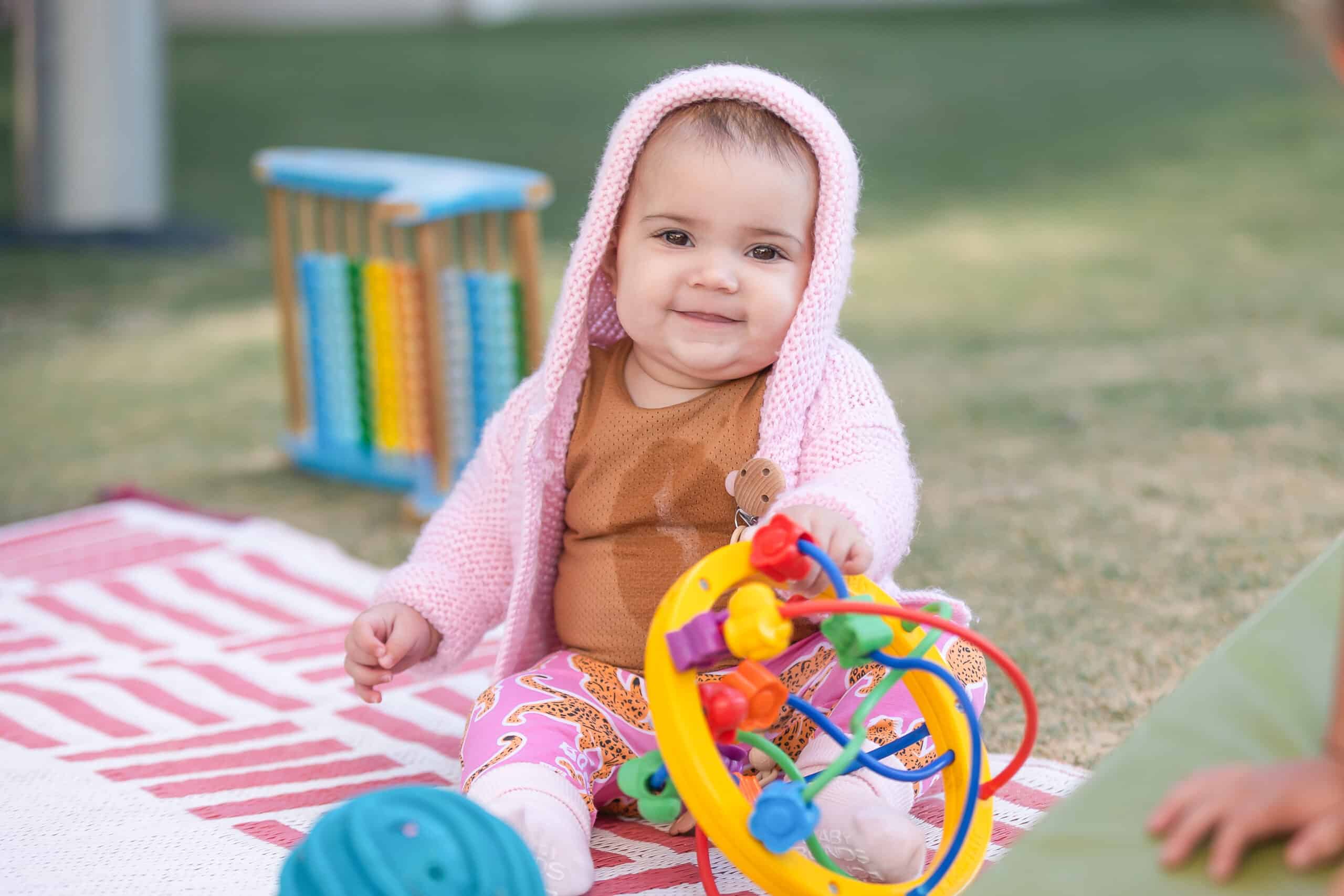
When starting child care, many parents worry about their child catching colds or other common illnesses. It's an understandable concern, but did you know that these early encounters with germs can actually benefit your child in the long run? While no one enjoys dealing with sniffles or fevers, the exposure children receive in a well-managed child care environment helps build a stronger immune system, setting the foundation for lifelong health.
In this post, we’ll provide an informative guide on what to expect in terms of illnesses at child care and why these experiences are not only normal but beneficial for your child’s long-term well-being.
What to Expect: Illnesses in Child Care
Starting child care often brings a period of adjustment for both children and parents. One of the most common concerns is an increase in mild illnesses, such as colds, coughs, or stomach bugs. While this might feel overwhelming at first, it is a normal and expected part of their development.
Why Children Get Sick More Often in Child Care
- Close contact: Child care environments involve close interaction between children, making it easier for germs to spread.
- Developing immune systems: Young children’s immune systems are still learning to recognise and fight off common bacteria and viruses.
- New germ exposure: Every child comes from a unique household with its own “microbial ecosystem.” When they join child care, their immune systems encounter unfamiliar germs.
Common Illnesses in Child Care
- Colds and upper respiratory infections: These are the most common illnesses, especially during the first year of child care.
- Gastroenteritis (stomach bugs): Caused by viruses like norovirus or rotavirus, these can lead to vomiting and diarrhea.
- Conjunctivitis (pink eye): A common and contagious infection that causes red, watery eyes.
- Ear infections: Often follow colds or other respiratory infections.
The Long-Term Health Benefits of Child Care
Although no parent enjoys seeing their child sick, early exposure to mild illnesses in a child care setting has significant long-term benefits.
1. Building a Resilient Immune System
Each time a child encounters a virus or bacteria, their immune system learns to recognise and respond to it. This process, known as "immune memory," strengthens their ability to fight off similar infections in the future.
Research published in the American Journal of Public Health found that children who attended group child care had fewer respiratory illnesses by the time they entered primary school compared to children who had less early exposure to germs.
2. Reduced Allergies and Autoimmune Diseases
The "hygiene hypothesis" suggests that early exposure to a variety of microbes helps the immune system develop tolerance, reducing the risk of allergies and autoimmune conditions.
A study by Lynch, S.V. et al. (2014) in the Journal of Allergy and Clinical Immunology highlighted that children exposed to common bacteria and viruses early in life are less likely to develop conditions such as asthma or hay fever.
3. Fewer Sick Days in School
A study by Ball, et al. (2002) noted that children who experience more illnesses in their early years tend to have fewer sick days once they reach school age. Their immune systems are better equipped to handle the larger “germ pool” in schools, resulting in improved attendance and fewer disruptions to learning.
How Milestones Child Care Centres Manage Illnesses
At Milestones Early Learning, we understand that illness is an inevitable part of childhood, but we’re committed to managing it in a way that protects all children while supporting families. Our health and safety practices follow the National Health and Medical Research Council (NHMRC) Staying Healthy guidelines.
1. Hygiene and Cleaning Protocols
We maintain rigorous hygiene standards, including:
- Regular handwashing for both children and staff.
- Cleaning and disinfecting toys, furniture, and high-touch areas daily.
- Enhanced cleaning during outbreaks to minimise the spread of germs.
2. Exclusion Policies
To protect the health of all children, we follow NHMRC exclusion guidelines. For example:
- Gastroenteritis: Children must stay home for at least 24 hours after the last symptom.
- Chickenpox: Children can return once all blisters have dried, typically after 5–7 days.
- Conjunctivitis: Children can return after 24 hours of treatment and when eyes are no longer sticky or red.
3. Open Communication with Families
We believe in transparency and keeping parents informed. In the event of an outbreak, we promptly notify families through Storypark updates and signage at the centre. Parents are given clear information about symptoms to watch for and any additional steps being taken to control the situation.
4. Supporting Immune-Compromised Children
For children with specific health concerns, we work closely with parents to create individualised care plans. This ensures that every child can thrive in our centres, regardless of their health needs.
Tips for Parents: Supporting Your Child’s Health
Here are some practical steps you can take to support your child’s health during their time in child care:
- Stay up to date with vaccinations: Vaccines are one of the most effective ways to protect your child from serious illnesses.
- Encourage good hygiene at home: Reinforce habits such as washing hands before meals and after playing outside.
- Prioritise rest and nutrition: A balanced diet and sufficient sleep help strengthen your child’s immune system.
- Consult your GP when needed: If your child’s symptoms persist or worsen, seek advice from your doctor to rule out more serious conditions.
FAQs: Common Questions About Illness in Child Care
Fewer Sick Days in the Long Term
At Milestones Early Learning, we’re not just helping children grow; we’re helping them build the foundations for a healthy future. While illness is an inevitable part of childhood, the experiences children gain in child care contribute to stronger immune systems, better health outcomes, and fewer sick days in the long term.
If you’d like to learn more about our approach to health and safety or book a tour at a Milestones centre near you, get in touch today. Together, we can give your child the very best start in life.
